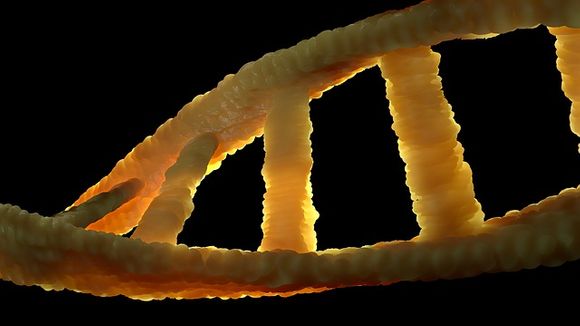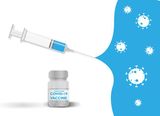Author: Yana Nencheva, Biochemist, PhD candidate in Biophysics
The criteria for beauty always remains unattainable. Smooth skin, a symbol of youth, however, is always desired, and let's face it: especially women (very rarely men) tend to obsess over the subject. Half of the population on Earth is of the fair sex, so there is a reason why the cosmetic industry is looking for all sorts of wrinkle smoothing solutions.
One of the most common substances declared to remove wrinkles is collagen, for which it is put everywhere - dietary supplements, creams, shampoos, etc.
However, when collagen levels drop, wrinkles turn out to be the least of our problems.
What exactly is collagen
Collagen is a protein that is a major structural component in connective tissues (skin and cartilage). The collagen share of proteins in the human body is between 1/3 and 1/4, making it the most common protein in our bodies.
There are 28 different types of collagen according to its amino acid composition. The most common are five types of collagen, which according to their structures are:
- Collagen type 1: Located in skin, bones, tendons, internal organs, vascular ligature and makes up the highest percentage (90%) of all types of collagen in our body;
- Collagen type 2: In cartilage, as their main component;
- Collagen type 3: In the bone marrow and lymphatic tissues, which is often found together in structures with collagen type 1;
- Collagen type 4: In the basement membrane (thin sheets of collagen that surround most types of tissues and act as a protective shell);
- Collagen type 5: In the hair and surfaces of cells, as well as in the placenta [ref. 1, 2].
Lack of collagen leads to age-related problems

The body's ability to produce collagen naturally decreases with age and this is normal. Factors that would speed up this process by adversely affecting natural collagen synthesis are excessive sun exposure, smoking and a uniform diet that does not provide the necessary amino acids [ref. 3].
When this happens, then our body changes to the appearance of:
- Wrinkles and sagging skin;
- Firmer, less flexible tendons and ligaments;
- Weakening of muscles;
- Joint pain due to worn cartilage;
- Gastrointestinal problems due to thinning of the mucous membrane in the digestive tract.
Read more:
However, the lack of collagen may also be associated with multiple genetic mutations. With the help of genetically modified mice with mutations in the genes responsible for collagen in the body, many aspects of the associated diseases have been clarified.
It turns out that the role of collagen is critical for a wide range of diseases caused by over 1,000 mutations. These mutations are currently identified in 22 genes. Such diseases are:
- Chondrodysplasia - underdeveloped cartilage tissue,
- Progressive muscular dystrophy or so-called Bethlem myopathy,
- Some subtypes of epidermolysis bullosis,
- Knobloch syndrome,which affects the retina,
- Some types of osteoporosis - bone damage,
- Osteoarthrosis - joint damage,
- Arterial aneurysms and others [ref. 4].
Which genes are related to lack of collagen
There are 28 types of collagen for which multiple genes are responsible. Mutations in genes for the five most common types of collagen lead to the following diseases.

Mutations in the COL1A1, COL1A2 genes lead to diseases in type 1 collagen:
- Osteogenesis imperfecta - a congenital disease characterized by fragile bone structures and improperly structured connective tissue. There is a severe and mild form that can be deadly.
- Ehlers-Danlos syndrome (EDS) - not only mutations in these two genes lead to this disorder, which is characterized by deformities in connective tissue. Some types of mutations can be deadly because they lead to rupture of the arteries.
- Infantile cortical hyperostosis (Caffey disease) - a disease in children that affects bones and is characterized by inflammation.
Mutations in the COL2A1 gene lead to disease in collagen type 2:
- Collagenopathy type 2 and 11 - large groups of diseases affecting collagen cartilage tissue.
Mutations in the COL3A1 gene lead to diseases in collagen type 3:
- Ellers-Danlos syndrome is also caused by this gene;
- Dupuytren's disease (Dupuytren's contracture) - characterized by fibrous nodes under the skin of the palm.
Mutations in the COL4A1, COL4A2, COL4A3, COL4A4, COL4A5, COL4A6 genes lead to diseases in collagen type 4:
- Alport syndrome - the disease develops in childhood or adolescent and is characterized by problems with the kidneys, eyes and deafness;
- Goodpasture syndrome (anti-glomerular basement membrane disease)
Mutations in the COL5A1, COL5A2, COL5A3 genes lead to disease in type 1 collagen:
- Ellers-Danlos syndrome is also caused by this gene, in this case its classic form.
Read more: Does
Foods rich in collagen

Our body breaks down the protein food taken down to amino acids, after which from these amino acids it builds the necessary types of proteins, including collagen. For this, if you get collagen-specific amino acids by following a balanced diet, it is best.
This type of meal includes:
- proteins - chicken, beef, eggs, dairy products, legumes, nuts and whole grains;
- a large amount of fresh vegetables and fruits - to provide a stable amount of antioxidants to protect the body from oxidative stress, which can negatively affect collagen [ref. 4].
Collagen products - do they help
Collagen is a popular ingredient among dietary supplements and creams, but as the scientific journal LiveScience says, few scientific sources unequivocally support its effectiveness.

Although collagen applied to a particular area has proven to work in wound treatment, Dr. Adelaide Hebert, professor of Dermatology and director of the Pediatric Dermatology Sector at the University of Texas Health Research Center, Houston, stresses that the evidence in favor of taking supplements is not conclusive when it comes to real benefits for hair, nails and skin.
The use of collagen cream compared with the daily use of sunscreen and moisturizer with retinol or salicylic acid for example (according to the type of skin, the needs of a person) is weaker when maintaining the skin.
Interestingly, the US Food and Drug Administration (FDA) does not regulate dietary supplements (in particular those with collagen) the same way as it does to medicines. Many dietary supplements with collagen claim that they can improve the strength of bones, muscles, skin and heart, relieve joint pain, improve bowel activity. However, experts warn that if you are considering taking collagen supplements it is important to first take into account your diet and lifestyle, because the supplement alone will not help [ref. 1].
Read more:
Our health is in danger: 17 ways to recognize false information
8+1 steps in choosing quality cosmetics
10 curious facts about aging and how to slow it down









